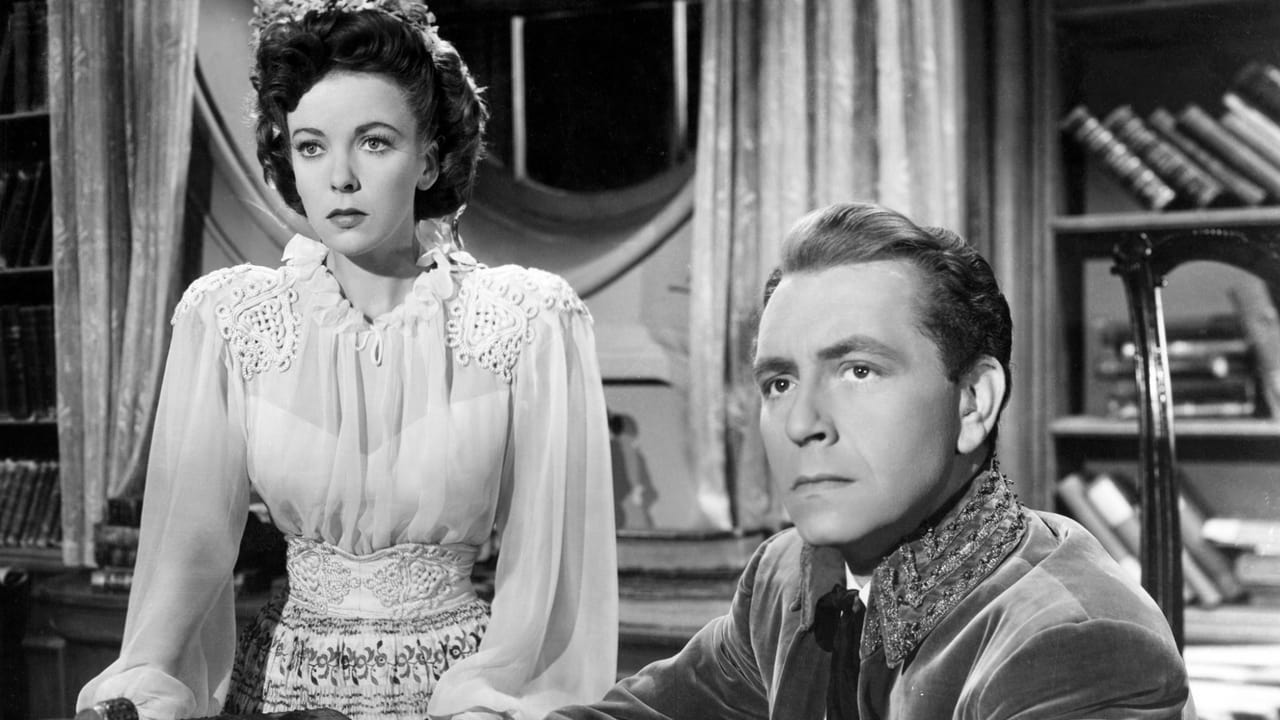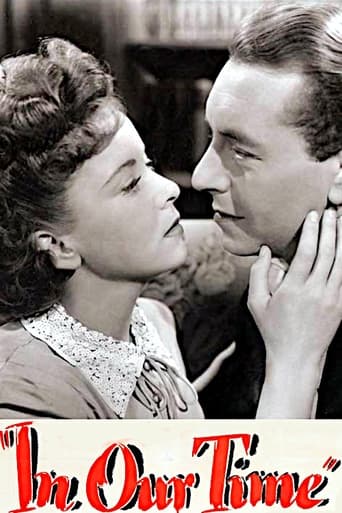

Excellent 1944 film with a greatly subdued, but still superior Ida Lupino, finding love in Poland with a count-wonderfully played by Paul Henried.What makes this film so good is that it shows the class distinctions among the Polish-from peasants to aristocracy, the latter unwilling to give up their status even as war beckons.Had this been a comedy, Mary Boland would have stolen the show. The gifted actress, with her high-pitched voice, was wonderful as the woman who takes Lupino to Poland in the former's search to buy antiques.Victor Francen is the embodiment of the aristocracy unwilling to change its ways. I thought by the end that he would have Nazi sympathies, given the type of person he generally played in films.A wonderful patriotic movie filled with commitment, duty and love.
... View More"In Our Time" from 1944 is a propaganda movie set in Poland starring Paul Henried, Ida Lupino, Nazimova, Nancy Coleman, Victor Francen, and Michael Chekhov, and directed by Vincent Sherman.The script, by Ellis St. Joseph and Howard Koch, is reminiscent in some ways to Rebecca and to Gone with the Wind. Jennifer Whittridge (Lupino) is traveling as a secretary to an antique dealer (Mary Boland) in Poland in 1939 when she meets Count Stephen Orvid (Henried). Henried mistakenly believes Jennifer is good for a quick fling, but he realizes soon enough that's not the case. As Jennifer's trip draws to an end, he proposes, and she accepts though his aristocratic family objects. In order to live independently of his uncle (Victor Franzen), Stephen and Jenny employ modern techniques on the farm and incentivize the peasants by giving them a share of the harvest. Then the war comes to Poland.There are good performances by everyone involved. The film moves slowly but one feels the tension of the approaching war. Some of that tension may be due to the viewer knowing that Poland was in for one miserable time not only during the war, but after under Communism.Paul Henried had his real heyday during WWII since the usual leading men were off fighting the war; Ida Lupino, since she was at Warners, always wound up with Bette Davis' handoffs and later distinguished herself on television and as a director. She and Henried make you care about the characters.It's odd to have a film set in Poland, odder still that Poland's radio announcements were in English. Eastern Europe's WWII story is a tragic one, and it wasn't shown in film all that often.
... View MoreA bit slow moving but nonetheless interesting. The only thing missing is Maria Ouspenskaya stirring a boiling cauldron.Paul Henried and Ida Lupino fall in love near Warsaw. She's a British commoner employed by a fancy English antique collector. Paul and Ida meet by accident in an antique shop. After they do some innocent and tender kanoodling for a while, Paul decides to bring Ida home to meet the Fockers...oops...I mean the royal Orvid family.Only philosophical uncle Leopold Baruta likes Ida. Paul's sister,Janina, hates her while the rest of the Orvids think she's not good enough for Paul. In the meantime, we encounter a guy who's supporting them all-- Count Pavel. The reason why he's a Count is because everyone watches him count his money to then disperse to them as monthly stipends.Count Pavel is also a representative of Poland to Nazi Germany and he's convinced that, after Czechoslovakia, Hitler had no more territorial designs on Europe so it would be a good idea to give him the Polish Corridor so as not to tick him off into attacking Poland. Ida begins to dislike the whole Orvid family and especially Paul's reliance on Pavel for dough. So she's about to hop a train to get her back to England when Paul promises to become independent and she buys into it. So they marry, start teaching the peasants how to till the land while Pavel seethes because this is no way for Polish nobility to act.On Sept,1.1939, the Nazis invade Poland and begin bombing Warsaw. Paul puts on his military uniform and heads for battle. Ida is left home and somehow, she rallies the peasants into fighting the Germans which history proves to be an absurdity. She teaches them the "scorched earth" policy which history teaches was anachronistic because it was the Russians who employed it against the Nazis after 6/22/41. However despite its flaws,it all makes for an interesting anti-Nazi, morale boosting film for us at home.
... View MoreAs an actress, Ida Lupino achieved success in the 40's acting alongside Humphrey Bogart and Edward G. Robinson. For me, she was a totally average actress. As a director, she had more substance to offer in the 50's and 60's, but I guess she was just paying the bills with this film.
... View More